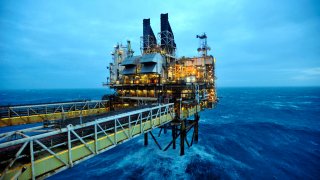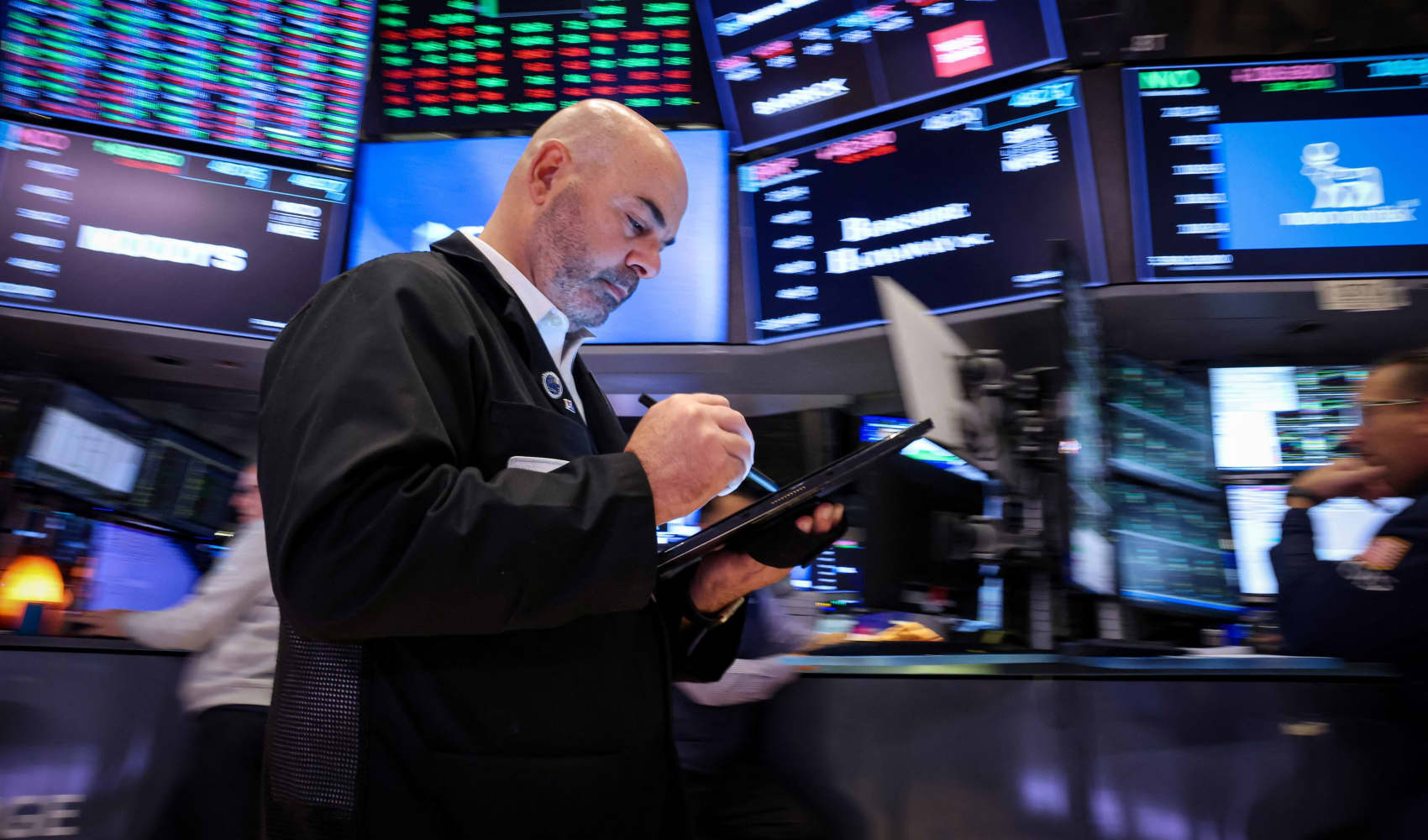
- BP CEO has told CNBC that hydrocarbons such as oil and gas will have an ongoing role to play in the energy mix for years.
- "It may not be popular to say that oil and gas is going to be in the energy system for decades to come but that is the reality," Bernard Looney told CNBC on Monday.
- Looney's comments come after the tense COP26 climate summit.
Oil giant BP is committed to tackling climate change, the company's CEO said, but he insisted that hydrocarbons such as oil and gas will have an ongoing role to play in the energy mix for years.
"It may not be popular to say that oil and gas is going to be in the energy system for decades to come but that is the reality," BP's Chief Executive Bernard Looney told CNBC on Monday.
Get top local stories in Southern California delivered to you every morning. >Sign up for NBC LA's News Headlines newsletter.
"What I want us to do is to focus on the objective — and I wish we had less ideological positions and more focus on the objective — which in this case is to drive emissions down."
He said that replacing coal with natural gas, thereby reducing carbon emissions, "has to be a good thing."
"And then over time we will decarbonize that natural gas," he said, speaking to CNBC's Hadley Gamble at the ADIPEC energy industry forum in Abu Dhabi.
Money Report
BP's Looney highlighted that the International Energy Agency's "Net Zero" report in May noted that, in 2050, global oil supply "in the net zero pathway" would still amount to around 20 million barrels per day,
"So any objective person ... is going to say that hydrocarbons have a role to play, the question then becomes: what do you do about that? And you try to produce those hydrocarbons in the best way possible," Looney added.
COP26
Looney's comments come after the conclusion of the COP26 climate summit in Glasgow. Nearly 200 countries agreed to "phase down" coal use (rather than "phase out," with China and India insisting on the language change at the last minute), as well as to "phase out" fossil fuel subsidies and to improve financial support to low-income countries.
The deal got a mixed reaction in the global media and climate activists said it does not go far enough.
Read more: ‘Still on the road to hell’: Global media reacts to COP26 climate deal
Looney said BP had made dramatic changes to focus on renewables, saying: "I don't think anyone would look at BP objectively and say we are not leaning into the transition."
"Over 12 months ago we had less than 10 gigawatts in renewables, today we have a pipeline of over 23 gigawatts. Twelve months ago we had nothing in offshore wind, today we are in the world's largest and fastest growing markets in the U.S. and the U.K. with 3.7 gigawatts. We had very little in hydrogen, today we have a great partnership with Adnoc, with Masdar and BP that will develop hydrogen — blue and green — over time," he said.
"So we are committed, we are all in on that,'" he added.
Looney said the key takeaways from the COP26 summit were "more ambition, real focus on methane, some work on the global carbon markets - I think these are all very good things. Clearly there is a lot more that needs to be done."
Looney's comments on the ongoing role that oil and gas have to play in the energy system echo those of oil-rich (and energy export-dependent) nations who attended the high-profile climate summit.
Then, Saudi Arabia's Energy Minister Prince Abdulaziz bin Salman Al-Saud told delegates that global efforts to fight climate change should not involve the shunning of any particular energy source.
"It's important that we recognize the diversity of climate solutions ... without any bias towards or against any particular source of energy," he told delegates.
He said the global community needed to pool its efforts to tackle climate change and to help less developed countries "without compromising their sustainable development path."
Saudi Arabia is one of the world's largest oil producers, alongside Russia and the U.S., and is trying to diversify its economy away from oil production. The task is not easy given that oil remains its primary global export and economic base.
OPEC's Secretary-General Mohammed Barkindo also told CNBC on Monday on the sidelines of ADIPEC "there's no doubt ... Oil and gas will continue to play a prominent role in the global energy mix for the foreseeable future."
Earlier on Monday, ENI's CEO Claudio Descalzi gave his take on the COP26 agreement, noting to CNBC that pledges to reduce methane emissions and end deforestation contributed to an outcome that was positive, overall. "I know there are people are not happy about that. But you have to consider where to put 196 countries together, and we have gaps between these countries, [between] very developed countries and undeveloped countries and I think we have to consider different rules and obligations [for these]."
BP's Looney said he had concerns over supply when it comes to the energy transition, saying that if supplies of oil and gas are lowered, prices will go up, hitting consumers hard.
"High prices are not good for consumers and consumers ... I worry that this could have the perverse effect of actually turning people against the [energy] transition," he said.
"So we must make sure we have a credible transition plan that works on supply, yes, but equally needs to focus on demand so we can make the transition the world wants to make but do it in a way that brings people with us rather than not."






